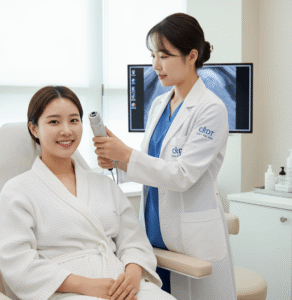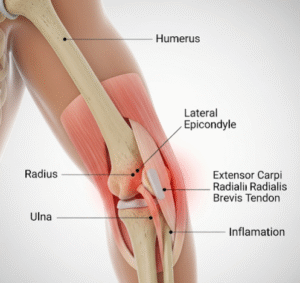Overview
Cochlear disorders are conditions that affect the cochlea, a spiral-shaped organ in the inner ear responsible for converting sound vibrations into nerve signals for hearing. These disorders can lead to partial or complete hearing loss and may affect one or both ears. In Korea, advanced audiology clinics and specialized ENT centers offer comprehensive diagnostics, medical management, and surgical interventions, including cochlear implants, to restore hearing function.
What is Cochlear Disorder?
Cochlear disorders encompass a range of conditions that impair the cochlea’s ability to transmit sound signals to the auditory nerve. Common types include:
- Sensorineural hearing loss (caused by damage to cochlear hair cells)
- Cochlear malformations (congenital structural abnormalities)
- Meniere’s disease (affecting inner ear fluid and cochlear function)
- Cochlear otosclerosis (abnormal bone growth around the cochlea)
These disorders may be congenital or acquired, sudden or progressive.
Symptoms
- Partial or complete hearing loss in one or both ears
- Tinnitus (ringing or buzzing in the ears)
- Vertigo or balance problems (in some cases)
- Difficulty understanding speech, especially in noisy environments
- Sensitivity to loud sounds (hyperacusis)
- Ear fullness or pressure
Causes
- Genetic mutations leading to congenital cochlear malformations
- Age-related degeneration of cochlear hair cells
- Exposure to loud noise or ototoxic medications
- Viral infections (e.g., mumps, measles, CMV)
- Autoimmune inner ear disease
- Head trauma or inner ear injury
Risk Factors
- Family history of hearing loss or cochlear malformations
- Exposure to high-decibel environments
- Chronic ear infections or untreated otitis media
- Premature birth or low birth weight
- Use of certain medications (aminoglycoside antibiotics, chemotherapy drugs)
Complications
- Permanent hearing loss if untreated
- Communication difficulties and social isolation
- Delayed speech and language development in children
- Learning difficulties in school-aged children
- Reduced quality of life and psychological stress
Prevention
- Regular hearing check-ups, especially in newborns and children
- Avoiding prolonged exposure to loud noises; using ear protection
- Early treatment of ear infections
- Genetic counseling in families with history of cochlear disorders
- Safe use of medications that may affect hearing
Treatment Options in Korea
Korea provides state-of-the-art facilities for diagnosing and managing cochlear disorders, including medical, surgical, and technological interventions.
- Medical Management
- Corticosteroids for sudden sensorineural hearing loss
- Diuretics or betahistine for Meniere’s disease
- Antibiotics for infection-related hearing loss
- Hearing Aids
- Advanced digital hearing aids for mild to moderate sensorineural loss
- Customized fitting and audiology follow-up
- Cochlear Implants
- Recommended for severe to profound sensorineural hearing loss
- Includes pre-surgical evaluation, implantation, and post-implantation rehabilitation
- Performed at specialized centers in Korea, including Severance Hospital, Samsung Medical Center, and Asan Medical Center
- Surgical Interventions
- Stapedectomy or ossicular reconstruction for conductive components
- Repair of cochlear malformations in congenital cases
- Rehabilitation and Support
- Speech and auditory therapy for children and adults
- Counseling for communication strategies and psychological support













